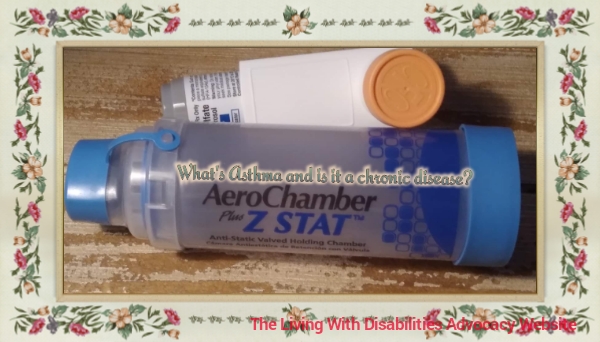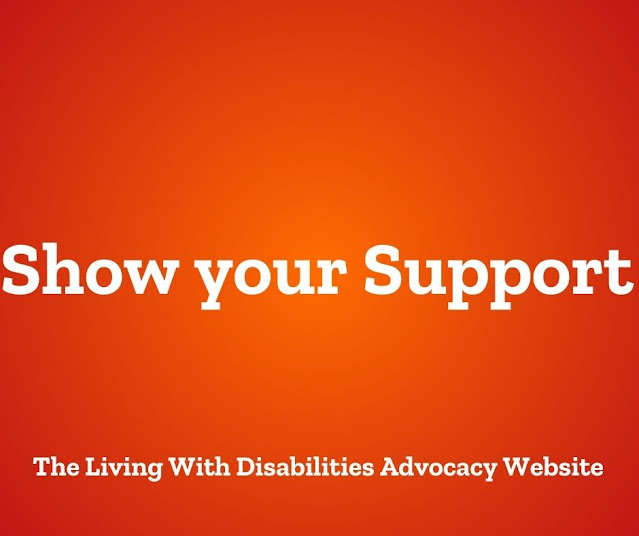What's asthma and is it a chronic disease?
Welcome to the Living With Disabilities Advocacy website. First and foremost. Self-published author Katrina Smith, a person of many accomplishments, has written six volumes in total: two cookbooks and four collections of poetry. Her favorite activities include reading and writing. Katrina would be described by one word: determined. Despite any challenges she may encounter, she does not let unkind comments decide her fate.
If you're a new visitor to this advocacy website, this page aims to increase public understanding of those with disabilities and other conditions. We suggest you seek a licensed professional counselor or healthcare provider for anything you read on this site.
This week, Living With Disabilities will touch on What's asthma and whether it is a chronic disease.
What is Asthma? Asthma is a lung condition that causes air to move through the airways in the lungs. The airways may occasionally swell and restrict if you have asthma. As a result, it is more difficult for air to leave your airways when you exhale. Excess mucus causes swelling and constricted airways that are clogged.
What is an asthma attack? when the chest feels tight because breathing is difficult due to blocked airways.
What types of asthma are there? There are four to nine types.
- Intermittent: comes and goes, you will feel normal and have asthma flare-ups.
- persistent: consist of flare-ups. And this will consider how well you can do different tasks because of flare-ups.
- Allergic: Seasonal or food allergies can offset flare-ups.
- non-allergic: outdoor activities can cause flare-ups. Exercise, illness, weather, and stress.
- Adult onset: an asthma kind that manifests by the age of 18.
- Childhood-onset: an asthma kind that manifests before 5, and it can occur in infants and toddlers. Childhood asthma may outgrow.
- Exercise-induced asthma: induced by physical activity.
- occupational asthma: Working with irritable materials.
- Asthma-COPD: Breathing might be challenging when you have both asthma and COPD.
What can cause asthma?
- Allergies: Asthma development is more likely in people who have allergies.
- Genetics: You may be at a higher risk if there is a family history of asthma or allergy conditions.
- Environmental factors: begin exposure to things that irritate the airways.
- Respiratory infections: Certain respiratory infections can cause asthma. The RSV respiratory syncytial virus can damage a child's lungs.
- Air pollution
- Dust
- Exercise
- Mold
- Pests
- Pet dander
- Tobacco smoke
- Strong Chemical smells
- Certain smells around the environment
Signs and symptoms
Asthma can mimic the signs and symptoms of Respiratory infections.
Tightness in your chest can be painful.
Coughing especially at night.
Shortness of breath.
Wheezing.
With every flare-up, you might not experience all of these signs and symptoms. and the symptoms or indicators may alter each time a flare-up takes place.
Treatment options for Asthma
- Anti-immflammory medication: Helps reduce swelling and mucus from around the airway.
- Bronchodilator: A machine that helps relax the muscles around the airways to let air move around the airways.
- Biologic therapies for asthma: These therapies are treatments for people with severe asthma. Inhaler with a dose counter, nebulizer, or any other type of asthma inhaler.
Can asthma go away? Asthma symptoms and indicators might differ from person to person, and they can even vanish. It can be for some people but not for others, yes.
a space created for people with disabilities to be able to have freedom of speech and talk on different topics surrounding the disability community. To get more details, check out The Advocacy Table. To become a panelist, Write into the show and let the host know what topic you want to talk about. She will then send out a group email to all panelists after the show has reached five or ten people. After the show, a survey will be emailed to you, and we would love to get your feedback.
If you need online support, Disability Safe Haven is great for receiving support. The We Care Team is very protective of its members and asks everyone who joins, to have a profile picture and answer the security questions.
Reference link
Asthma: Types, Causes, Symptoms, Diagnosis & Treatment (clevelandclinic.org)
Podcast link




Comments
Post a Comment